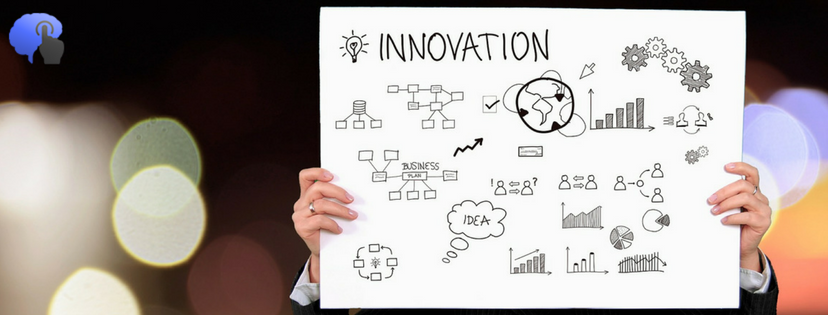
It is a fact that the most upcoming economists and psychologists, nowadays, with a vast theoretical background, thirst for knowledge, and impatience to make an impact on the world, search for an interesting field to specialize in.
Behavioral Economics is an upcoming field that combines the science of Economics and Psychology and could give young scientists an alternative perspective in their careers.
The problem is that, most professionals, especially supervisors and even HR specialists, cannot really understand how Behavioral Economics apply to their work routine. There are times that even I find myself trapped in the same frequency of thought.
Every company is looking for ways to reduce their cost-and-time-spent-versus-profit ratio. In order to achieve this, they need insights, and use market research and data analysis as their main tools.
A Behavioral Economist is useful in both areas. That’s the primary reason why my main mission is to figure out the application of Behavioral Economics in the commercial world.
Let’s dive into three useful applications:
1) Small Data Is The New Big Data
The research of ‘Nextstage Evolution’ concluded, as referred in their Facebook and LinkedIn profiles:
“Companies are realizing ‘big data’ isn’t as useful as they were told, and that smaller, precise data sets answer questions quicker and cheaper.”
In that case, a Behavioral Economist can help companies reduce their costs and time spent on ‘big data’. In their research, they could find which variables lead to these precise ‘small data’. Their ability of separating data is reflected through a Behavioral Economics tool, the ‘conceptual models’.
Behavioral scientist Alain Samson, editor of ‘The Behavioral Economics Guide 2015’, suggests in his guide that these models are used to identify consumer groups, classified by their needs and wants.
The most important factor, in that case, is human psychology.
In order to classify those groups, Behavioral Economists analyze descriptive characteristics, such as gender, income, age and education, and behavioral dimensions, such as benefits, usage rates and loyalty status.
Behavioral economists could effectively apply the analysis and understanding of consumer behavior, as well.
It includes the consumer’s behavior when face-to-face with the seller, or the pre-purchase behavior of the consumer, according to the available information collected up to that point. More emphasis could also be given to the post-purchase outcomes and reactions of the existing consumers, in order to evoke positive feelings (about the performance of the good) that will lead to additional word of mouth and loyalty on the company’s brand.
2) Social Norms And Herd Insticts
The ‘nudge theory’ was coined and popularized in the 2008 book, ‘Nudge: Improving Decisions about Health, Wealth and Happiness’, written by American academics Richard H. Thaler and Cass R. Sustein.
According to the authors (2008, page 6):
“A nudge […] is any aspect of the choice architecture that alters people’s behavior in a predictable way, without forbidding any options or significantly changing their economic incentives. To count as a mere nudge, the intervention must be easy and cheap to avoid. Nudges are not mandates. Putting the fruit at eye level counts as a nudge. Banning junk food does not.”
Economists and psychologists still argue over the application of this theory. However, its essence can be practically used by Behavioral Economists, especially when it comes to behavioral science terms, such as ‘social norms’ or ‘social norming’.
According to Alan D. Berkowitz PhD, ‘The Social Norms Approach: Theory, Research and Annotated Bibliography’ (2004, page 5):
“The social norms approach states that our behavior is influenced by incorrect perceptions of how other members of our social groups think and act.”
According to Thaler (2008, p.182) in real life:
“People like to do what most people think it is right to do; people like to do what most people actually do.”
Taking the aforementioned insights into account, here is an example of how Behavioral Economists and marketers could make a point by applying ‘social norming’: “9 Out Of 10 People Pay Their Taxes On Time”.
3) Big Risks – Big Wins
Behavioral Economists with a PhD degree have the ability to conduct behavioral and decision-making research in their labs. Despite being a great research tool, there is a main disadvantage (Alain Samson, 2015, p.15): the lack of external validation (coming outside of the lab).
Research and tests in real world scenarios are often used to tackle this problem, although they tend to be more expensive that those in a lab. Economics and investments involve a lot of inherent risk; running expensive, time-consuming, out-of-the-lab experiments might be an additional risk a company has to take in order to improve their performance and outmatch their competition.
According to the Indian Institute of Technology Kharagpur (Diploma in Applied Psychology – Consumer Behavior, ALISON – Free online learning), consumer behavior understanding, thus Behavioral Economics, is an interdisciplinary science, because it is based on the fields of Economics, Psychology, Sociology, Social Psychology and Anthropology.
Therefore, Behavioral Economists could work as full-stack analysts, dealing with a wide variety of projects, depending on the company’s needs. Consequently, companies could potentially save in terms of both human resources and money.
# # #
Even though all of these applications of Behavioral Economics haven’t been used in Greece, yet, we strongly believe that they would cause a high impact on how companies work and market their products and services, as referred in the cited research.
Feel free to share your comments; we’d love to start a conversation with you.
Chronis Lalas, Behavioral Economist & Founder of Nudge Unit Greece
~Explaining Behavioral Economics Simply~
References
- NextStage Evolutionwww.facebook.com/nextstagevolution
- Alain Samson (2015), ‘The Behavioral Economics Guide 2015’www.behavioraleconomics.com/the-behavioral-economics-guide-2015/
- Richard H. Thaler and Cass R. Sustein (2008), ‘Nudge: Improving Decisions about Health, Wealth and Happiness’
- Alan D. Berkowitz PhD (2004), article ‘The Social Norms Approach: Theory, Research and Annotated Bibliography’www.alanberkowitz.com/articles/social_norms.pdf
- Diploma in Applied Psychology – Consumer Behavior, ALISON – Free online learningalison.com/courses/diploma-in-applied-psychology-consumer-behavior/content
